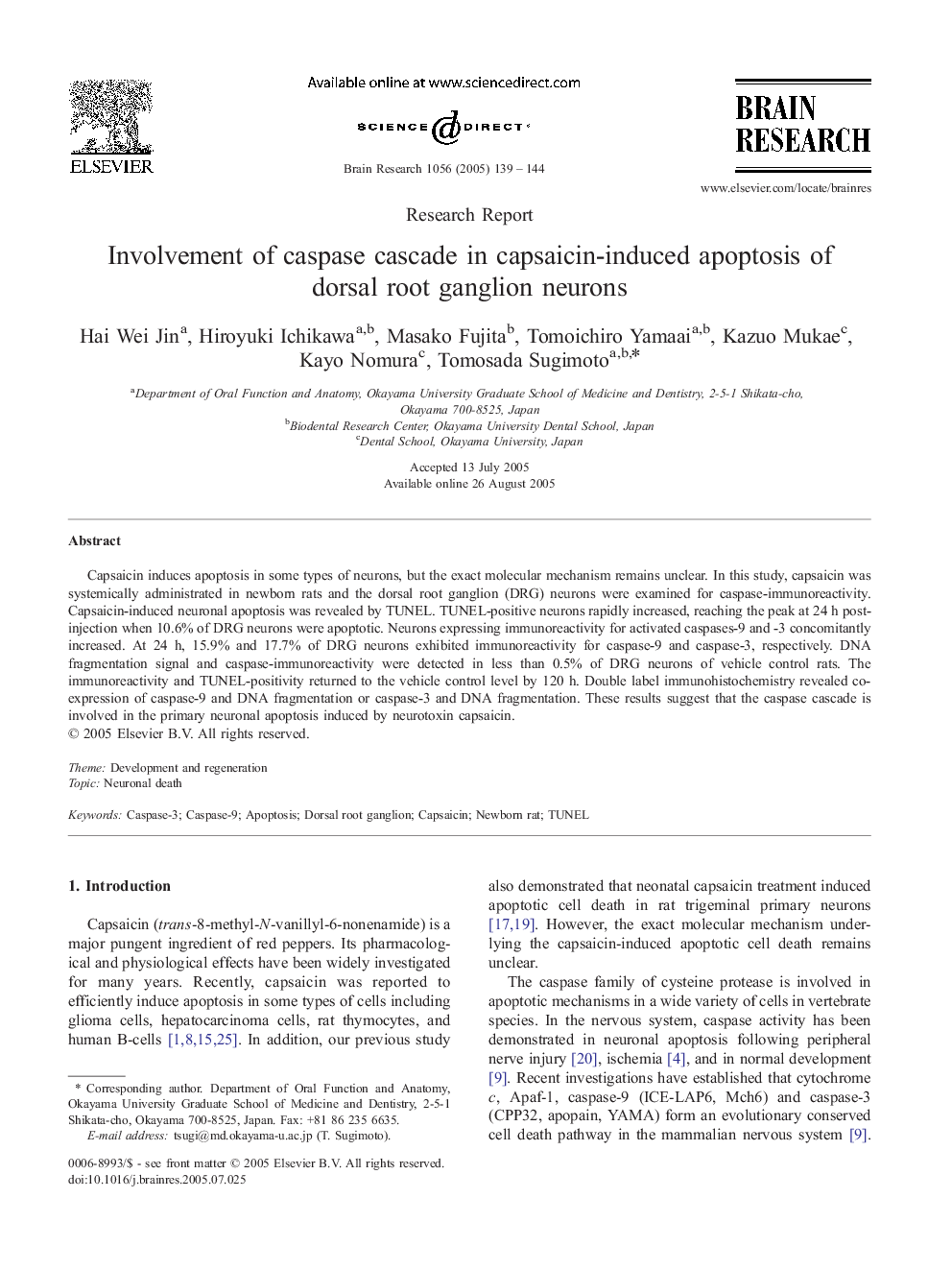| Article ID | Journal | Published Year | Pages | File Type |
|---|---|---|---|---|
| 9416014 | Brain Research | 2005 | 6 Pages |
Abstract
Capsaicin induces apoptosis in some types of neurons, but the exact molecular mechanism remains unclear. In this study, capsaicin was systemically administrated in newborn rats and the dorsal root ganglion (DRG) neurons were examined for caspase-immunoreactivity. Capsaicin-induced neuronal apoptosis was revealed by TUNEL. TUNEL-positive neurons rapidly increased, reaching the peak at 24 h post-injection when 10.6% of DRG neurons were apoptotic. Neurons expressing immunoreactivity for activated caspases-9 and -3 concomitantly increased. At 24 h, 15.9% and 17.7% of DRG neurons exhibited immunoreactivity for caspase-9 and caspase-3, respectively. DNA fragmentation signal and caspase-immunoreactivity were detected in less than 0.5% of DRG neurons of vehicle control rats. The immunoreactivity and TUNEL-positivity returned to the vehicle control level by 120 h. Double label immunohistochemistry revealed co-expression of caspase-9 and DNA fragmentation or caspase-3 and DNA fragmentation. These results suggest that the caspase cascade is involved in the primary neuronal apoptosis induced by neurotoxin capsaicin.
Keywords
Related Topics
Life Sciences
Neuroscience
Neuroscience (General)
Authors
Hai Wei Jin, Hiroyuki Ichikawa, Masako Fujita, Tomoichiro Yamaai, Kazuo Mukae, Kayo Nomura, Tomosada Sugimoto,
